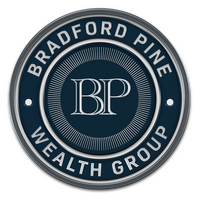 1) Your old 401(k) is not being managed by the best of the best!
1) Your old 401(k) is not being managed by the best of the best!
401(k) accounts are great for many things while you’re still employed with your current company, like high contribution limits and matching employer contributions. However, they are usually pretty poor when it comes to choosing investment managers and styles. To make savings decisions easier, your company’s 401(k) plan likely has limited options across a limited number of asset classes. These limitations make it less intimidating for participants to choose investments, but it can also prevent you from accessing the best managers and getting the most out of your retirement savings. 401(k) accounts only allow you to get the best of what the plan offers, rather than the best of the best. It’s time to take action!
This is why I generally advise clients to move their old 401(k)s into a Rollover IRA, which can provide a wide range of investment options to meet your particular needs. Some people avoid rolling it over because of the perception that it’s difficult, time consuming, or unnecessary, but keeping an old 401(k) can put you at a major disadvantage by becoming a dead weight on your portfolio’s performance. Instead, roll it over to a new custodian with a broad range of investment options, and build an actively managed portfolio with the best managers.
2) An IRA that is out of sight and out of mind isn’t going to keep you out of the woods
Unfortunately, old IRA accounts can also become dead weight. New clients regularly come to me with several IRA accounts and little grasp of what is happening in each one. Not only does this often lead to poor performance across the accounts, but the uncertainty can cause a lot of stress!
I usually advise my clients to bring their various retirement accounts together wherever possible because consolidation makes it far simpler to manage the investment process and keep track of your performance. Fewer accounts also make it easier to avoid overlap in each account’s investment strategy and to track the big picture of your asset allocation. Finally, consolidating your holdings with the right custodian opens up access to a broad range of potential investments and managers, rather than limiting you to a few asset classes or mutual funds.
Take a look at Dusting Off Your Retirement Accounts to learn more about what you can do to spruce up your retirement savings.
3) You’re likely missing opportunities for diversification
If you can choose between 100 different domestic small cap managers but don’t have any options when it comes to alternative investments, you may get a great small cap manager but still miss out on an important source of diversification. Great portfolio risk management can help you actively manage the downside, so you lose less when the market drops and hopefully track market returns when the markets are up. I’ve learned over the past 20-plus years that portfolio construction is not about chasing returns and beating the indexes every year. This just encourages short-term thinking and leads to additional risk-taking. Instead, it should be about planning for the long-term and trying to protect against major losses.
Alternative investments can be a key part of this strategy. Alternatives are those asset classes and strategies that are less correlated with movements in the broad market than your standard investments. They can include commodities, futures, and floating rate bonds; or such strategies as long/short and hedged equity allocations. Don’t let the jargon confuse you though; the point of alternatives is that they generally move independently of stocks and bonds. This serves as diversification and may provide protection against a drop in the stock market and the effect that will have on your portfolio. Of course it is possible for the alternatives to lose value as well, but remember; you are attempting to reduce the monetary risk associated with your investment tied to the stock market. You can access alternative investments through mutual funds, which provide liquidity and transparency, but it’s important to make sure that you can access them through your IRA. I also recommend that you seek the guidance of an experienced wealth advisor when incorporating alternative investments into your portfolio so that you get the right investment mix with the right risk level for you.
To learn more about how alternative investments can improve your risk management, check out my article Using Alternative Investments to Minimize Left Tail Risk and Black Swan Events.
4) Hidden fees may be eating away at your returns
When it comes to managing 401(k) and IRA accounts (and even non-retirement accounts), most people are simply unaware of what they’re paying. There’s a common tendency among investors to worry about fees but avoid asking about them. Remember that it’s important to have a firm grasp on the fees that you’re paying for the management of your accounts.
401(k) accounts have additional costs built in, such as administrative fees, which are rarely noticed by participants. Added to expense ratios and other mutual fund fees, these can add up over time and eat into your performance. Most people are willing to pay for a good product or service, but you need to know what you’re paying for and why. Be sure to take a look at the fees included with your 401(k) or Rollover IRA and make sure that you’re comfortable with them.
To learn more about common investment management fees, take a look at my article, What are all These Fees?
5) A few simple steps can go a long way towards retirement success
My number one recommendation for clients with old 401(k) and existing Rollover IRA accounts is to consolidate into as few Rollover IRAs as possible. Find the right custodian with access to a broad range of asset classes and top managers and use consolidation to keep track of your investments and performance. From a tax standpoint, you want to make sure you roll it over directly to another qualified account. This should put you on the road to more effective portfolio management and peace of mind.
When people ask me what else they can do, my usual answer is to find the right advisor. This will be someone you’re comfortable with and who can take you into the next generation of investing by incorporating alternative asset classes and actively managed accounts. As I always say, “knowledge is power”, so ask questions if you aren’t sure about something. The more you know, the more powerful you can be in making your retirement savings a success.
.
.
To learn more about retirement savings, download my free eBook, “10 Tips You Need to Know About Your IRA Rollover.” This short book is packed with critical information that will help you make the right decisions about your retirement savings.
Written by Bradford Pine
Bradford Pine Wealth Group – New York City Financial Advisors
The views and opinions expressed in an article or column are the author’s own and not necessarily those of Cantella & Co., Inc. It was prepared for informational purposes only. It is not an official confirmation of terms. It is based on information generally available to the public from sources believed to be reliable but there is no guarantee that the facts cited in the foregoing material are accurate or complete.
Comments may not be representative of the experience of other investors. Investor comments and experiences are not indicative of future performance or results. Views and opinions expressed in the comments section are the author’s own and not those of Cantella & Co., Inc. No one posting a comment has been compensated for their opinions.


[…] help you make the right decisions about your retirement savings. … View original post here: 5 Things You Must Know About Your Old 401(k) or Existing IRA … ← US Labor, Treasury Departments Act to Enhance Retirement Security […]
[…] it over, and if you have a stagnant IRA, you should consider actively managed funds. See my article 5 Things You Must Know About Your Old 401(k) or Existing IRA for more! You might also want to read about Dusting Off Your Retirement Accounts and the Case for […]